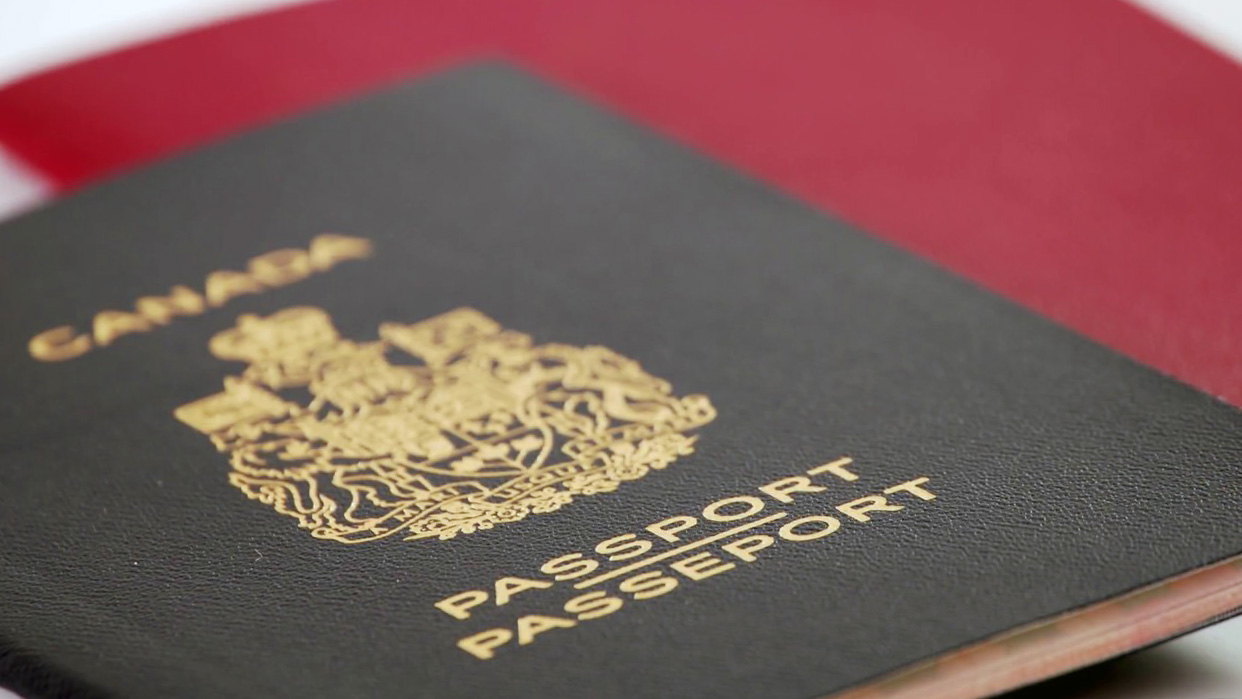Startups & Visas USA: How Dubai Founders Can Leverage U.S. Opportunities

For Dubai-based entrepreneurs, expanding to the United States offers access to the world’s largest market, enhanced credibility, and game-changing growth opportunities. However, navigating the complex U.S. visa landscape is a critical hurdle. This guide condenses essential information for Russian, Indian, and other expat founders in Dubai, outlining the primary U.S. startup and investment visa options, their requirements, practical steps, pitfalls to avoid, and expert tips for a successful transition.
Startup Visa Options for Russian and Dubai-Based Entrepreneurs
The U.S. does not offer a single “startup visa,” forcing foreign founders to leverage alternative pathways. The most relevant U.S. visa categories for Dubai-based entrepreneurs include:
1. L-1A Intracompany Transfer (New Office)
- Best For: Owners or executives of a Dubai company seeking to establish a U.S. branch.
- Eligibility: Must have worked in an executive/managerial role in your Dubai company for at least one of the past three years.
- Requirements: Solid business plan, U.S. office lease, and proof of financial ability.
- Duration: 1-year initial stay for new offices, extendable upon business progress.
- Benefits: Spouses receive L-2 visas with immediate work authorization; can transition to a green card via EB-1C if the U.S. branch grows.
- Challenges: Must maintain both Dubai and U.S. operations during the process.
2. O-1A Extraordinary Ability Visa
- Best For: Founders with recognized achievement in business, science, or technology.
- Eligibility: Must demonstrate extraordinary ability through awards, media, patents, or notable achievements.
- Requirements: At least three of eight strict O-1A criteria (e.g., press, awards, leadership). U.S. entity or agent must petition for you.
- Duration: Up to 3 years, renewable.
- Family: Spouses (O-3) cannot work.
- Pathways: Can lead to a green card (EB-1A or EB-2 NIW) for those with sustained national/international acclaim.
3. International Entrepreneur Parole (IEP)
- Best For: Venture-backed founders needing fast access to the U.S.
- Eligibility: Startup must be under 5 years old, with at least ~$311,000 (as of late 2024) in U.S. investment or $100,000+ in government grants.
- Duration: Up to 30 months, extendable.
- Benefits: Does not require a visa number and provides rapid access.
- Caveats: Is “parole” not a visa, does not directly lead to a green card, and requires ongoing business growth for extension.
4. H-1B Specialty Occupation Visa
- Best For: Founders who can structure their employment through a U.S. entity and qualify for the annual lottery.
- Eligibility: Requires a U.S. job offer and specialty degree; founders must ensure clear employer-employee separation (e.g., board oversight).
- Challenges: Subject to lottery, annual caps, and strict role definition, making it less reliable for founders compared to other routes.
Key Advice: Early planning and expert consultation are vital. Each visa path has unique legal, financial, and business implications. Consider working with an experienced immigration attorney and, for Dubai expats, a specialized visa consulting agency to navigate paperwork, timing, and compliance. For urgent U.S. visa needs, see USA Urgent Visa Services.
U.S. Investment Immigration Pathways
Wealthier entrepreneurs or those seeking permanent residence often consider U.S. investment-based immigration, notably:
EB-5 Immigrant Investor Green Card
- Goal: U.S. permanent residency for the investor and immediate family.
- Investment: $800,000 USD in a Targeted Employment Area (TEA) or $1,050,000 in other areas. Must be “at risk” in a new commercial enterprise.
- Job Creation: Ten full-time U.S. jobs within about two years.
- Process: Petition (I-526E) approval can take over a year; the entire process to full green card often takes 3–5 years.
- Benefits: No requirement to run the business daily; spouse and children under 21 also obtain green cards.
- Risks: Capital is tied up, returns aren’t guaranteed, and due diligence is necessary when selecting projects.
E-2 Treaty Investor Visa
- Best For: Entrepreneurs from E-2 treaty countries wishing to actively manage a U.S. business.
- Eligibility: Must be a citizen of an E-2 treaty country (not India or Russia; second citizenship from a country like Grenada can provide eligibility).
- Investment: No fixed minimum, but generally at least $100,000–$150,000 USD for tech startups; investment must be “substantial” and at risk.
- Ownership: Must retain at least 50% control.
- Business Activity: Must be an active, non-marginal enterprise (not simply sustaining the owner’s family).
- Duration: Typically 2–5 years, renewable indefinitely.
- Family: Spouses can work; children (under 21) can attend U.S. schools.
- Caveats: Losing majority ownership (e.g., through fundraising) can jeopardize status.
Note: The E-2 is popular and growing fast, with 54,000+ visas issued in 2023. Many Dubai-based entrepreneurs pursue second citizenship (e.g., in Grenada, Turkey) to become eligible.
Opening a U.S. Business Bank Account
A U.S. business bank account is essential for operations, payroll, and credibility.
Incorporate in the U.S.
Most use a Delaware C-Corp or LLC. You’ll need federal EIN (tax ID).
Select a Bank
Big banks (e.g., Chase, Wells Fargo) often require an in-person visit. Some international banks (e.g., HSBC) may help via Dubai branches. Fintech startups (e.g., Mercury, Brex, Wise) offer hassle-free remote account opening for foreign founders.
Prepare Documents
Incorporation documents, EIN, ownership agreements, passports, and proof of address.
Understand Tax and Compliance
Monitor ongoing obligations. U.S. business presence supports visa applications but don’t engage in unauthorized work before your visa is approved.
Unique Challenges for Russian-Speaking Founders
- Visa Appointment Delays and Geopolitics: Russians must apply in third countries due to limited consular services in Russia. Wait times for visa interviews in the UAE can reach 9–12 months—plan early and keep documents impeccable. Sanctions may trigger extra scrutiny and administrative processing.
- Language and Business Culture: Direct, marketing-driven U.S. business style may require adjustments in pitches and communications. Consider a communications coach or U.S.-based advisor.
- Banking/Sanctions: Ensure funds are well-documented, originate from clean sources, and that transfers don’t involve sanctioned Russian banks. Route investments through UAE or international banks.
- Building a U.S. Network: Proactively join U.S. industry groups, leverage the Russian diaspora, attend conferences (using a B-1 visa initially), and consider hiring a U.S.-based advisor.
- Family and Emotional Factors: Transitioning involves lifestyle changes and family adjustments. Start with part-time relocation, then gradually move the family once the business and visas are stable.
Mistakes to Avoid
- Procrastination: Visa processing and interview slots can take months or a year; start early.
- Weak Documentation: Submit robust, detailed business plans and strong evidence for eligibility.
- Wrong Visa Usage: Don’t attempt to work using a B-1/B-2 visitor visa; only use visas that authorize employment.
- Neglecting Home Operations: For L-1, both Dubai and U.S. businesses must remain active.
- DIY Pitfalls: U.S. immigration law is nuanced—errors can mean denials. Use professional support.
- Misrepresentation: Always provide accurate, consistent information—misstatements can result in bans.
FAQs for Dubai Entrepreneurs
- Is there a U.S. Startup Visa? No. Founders use L-1A, O-1A, E-2, or IEP, each with its own requirements.
- Can Indians or Russians get E-2? Not directly—neither country is a treaty member. Some obtain second citizenship (e.g., Grenada) for eligibility.
- How much do I need to invest? EB-5: $800,000–$1.05 million (plus job creation). E-2: usually $100,000–$150,000+. IEP: ~$311,000 from U.S. investors.
- Is health insurance required? Not legally, but highly recommended due to high U.S. medical costs.
- Can my spouse or children work/study?
- Spouses: L-2 and E-2 can work; O-3 and B-2 cannot.
- Children: Can study, but cannot work unless they obtain their own status after 21.
- What if my business fails? Your visa is tied to your startup—if it closes, you lose eligibility and must leave or find another status.
- Can these visas lead to permanent residence? Only EB-5 is direct. Others require a separate green card process (e.g., EB-1C after L-1A growth, EB-1A or EB-2 NIW, or family sponsorship).
Conclusion & Next Steps
Expanding a startup from Dubai to the U.S. is challenging but achievable, offering vast rewards for those who prepare thoroughly. The right visa pathway—matched to your business model, personal background, and family goals—can unlock American markets, capital, and talent.
Success depends on:
- Early, strategic planning.
- Honest, detailed documentation.
- Respect for legal requirements.
- Using expert support for immigration, legal, and financial steps.
With these foundations, Dubai founders—from Russia, India, or elsewhere—can make a seamless leap into the U.S. entrepreneurial ecosystem, turning ambition into reality.
For tailored support, consider working with visa experts who understand the distinct needs of Dubai expats. The journey is complex, but you don’t have to navigate it alone—professional guidance dramatically increases your odds of a smooth, successful U.S. expansion. Contact Us



